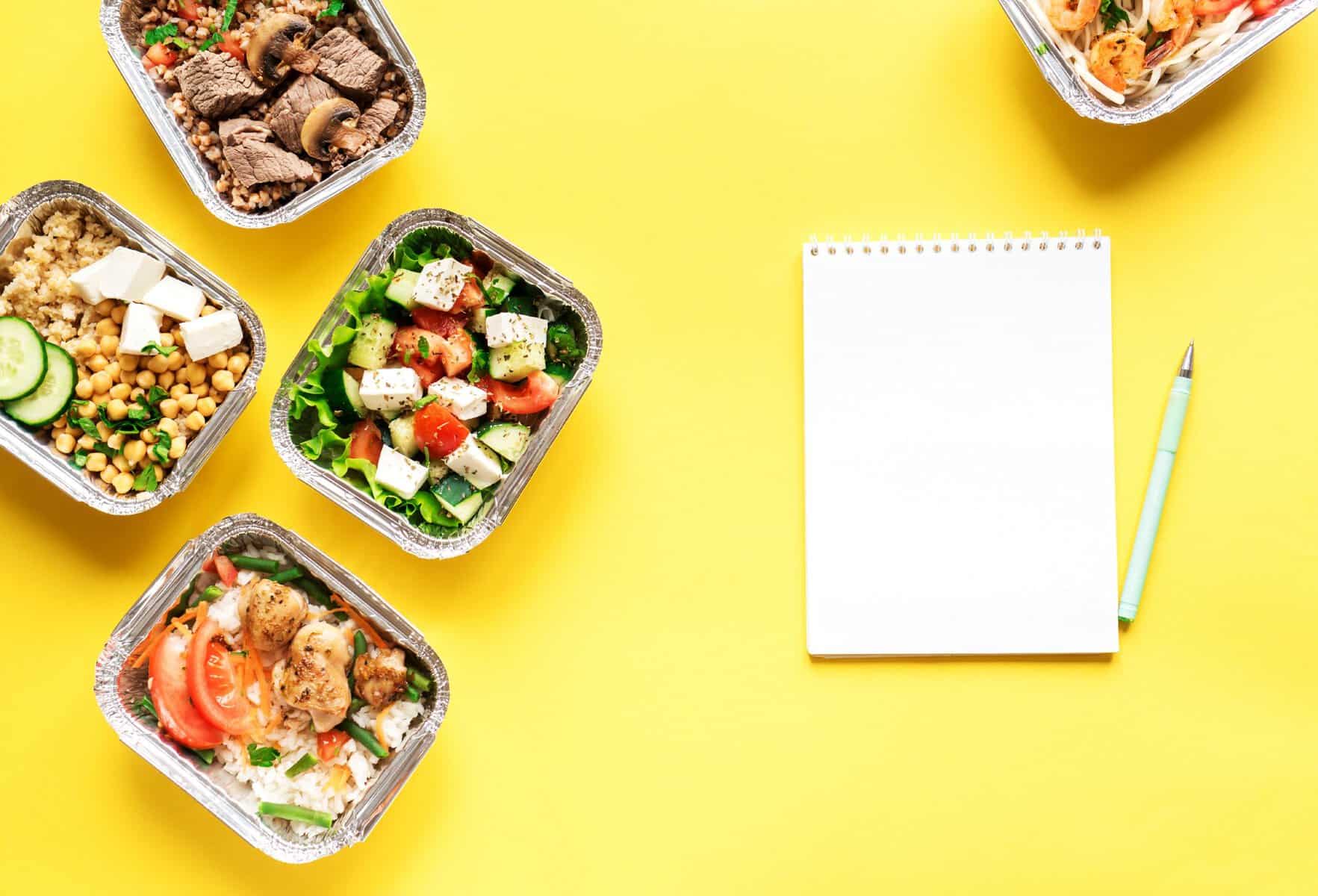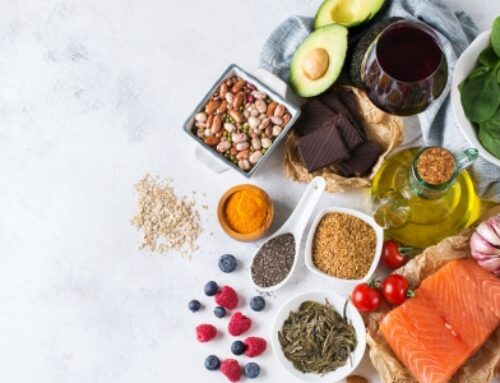
If you have left work for the day feeling drained and unmotivated to cook, you aren’t alone. A hectic schedule is one of the main reasons we opt for a takeaway meal during the week. But what if it didn’t have to be that way? What if, within minutes of walking through the front door, a delicious home-cooked dinner was ready to eat.
With chaotic schedules, meal prepping is the answer.
Meal prepping is the preparation of food ahead of time, to grab-and-eat later. If you have ever packed up your dinner leftovers to take for lunch the next day, you have already done a meal prep.
Meal prepping has become synonymous with broccoli-and-chicken eating gym goers. However, this is not the only method of meal prepping, as it can be based on your food preferences, cooking ability, schedule, and personal goals. So, is it time that you gave meal prepping a go?
Why Meal Prep?
Meal prepping has many advantages, including:
Reducing Stress
Planning your meals in advance can lessen your mental load and decision fatigue. Through planning you can reduce your daily stressors with the knowledge that you are going to eat well, without giving it a second thought.
Save Time
Once you have your meals planned out, you can spend less time in the kitchen and more time enjoying life. Your planning can allow you to not have to cook every day or waste time thinking about what to make (with the contents of your fridge and pantry).
Save Money
Eating out costs a lot of money! Meal prepping can help you stick to your budget, by helping you buy only ingredients you will need and use. Why spend $15 on a single chicken burrito bowl, when you could spend $15 on chicken that will last you a week?
Buying in bulk and avoiding impulse buys can help keep your grocery bill down.
Avoid Temptations & Manage Hunger
Meal prepping ensures you always have an option that suits your dietary needs. As a bonus – depending on your meal prep style – your meal is ready-to-go or very close to it when hunger strikes. Thus, eliminating the temptation to eat something outside of your plan while you wait for your meal to cook.
How to Meal Prep
Meal prep doesn’t have to mean eating the same meal every day. In fact, there is more than one way to meal prep. Which way works best for you?
Make Ahead Meals
Fully cooked meals prepared in advance to be reheated at mealtimes. Perfect for those nights you know you will get home late.
Batch Cooking
Cooking a large batch (or batches) of a recipe with the intention of splitting it up into smaller portions and freezing for meals in the weeks to come. Perfect for rotating warm work lunch options.
Portioned Meals
Preparing fresh meals and then portioning them into individual grab-and-go sizes to be eaten over the next couple of days. Perfect for single-serve breakfasts (like overnight oats), salads, and bento box meals.
Ready to cook
Preparing ingredients for specific meals in advance ready to just cook the meal before serving (cutting down kitchen time). Perfect for quick and simple one-pan dinners.
The method that works best for you will depend on your goals and daily routine.
Thankfully, you don’t have to pick and stick to one method. You can mix and match depending on your circumstances. For instance, doing ready to cook ingredients for most of the week, but having a make ahead meal ready to go on the night you pick up the kids from sports or have a late work meeting.
Making Meal Prep Work for You:
Meal prepping can take some getting used to and won’t be perfect to begin with. Use the tips below to get you started.
Start Small
Consider your schedule and plan only a few meals and snacks for the week. As you gain confidence meal prepping, you can add to the amount you do, whether you add an extra snack or meal to your prep list.
When starting out, stick to recipes you know and are comfortable with.
Pick the right number of meals
When meal prepping, it is best not to plan on prepping seven different breakfasts, seven different lunches, and seven different dinners. Instead consider your week. Do you have any planned dinners with friends? Do you have any lunch meetings? Are you meeting up for brunch on the weekend? From this information you can determine how many meals you need for the week, and which meals will require you to meal prep.
Make Time to plan for success
The best way to meal prep is to integrate it into your routine and make it a priority.
Regardless of which method you choose, meal prep takes planning. Spending fifteen minutes to write out your meal plan will not only help you with your grocery list but also your plan of action when it comes to cooking.
Save yourself time by:
- Writing out your grocery list by section, i.e., produce, dairy, breakfast cereals, and tinned vegetables.
- Knowing where everything ‘lives’ in the kitchen to speed up the unpacking process.
- Wash and prep your fruit and vegetables before you store them.
- Keep your old meal plans to reuse later.
- Cooking the meal with the longest cook time first if you choose to make all your meals ahead of time.
Get Organised
Organisation, particularly good organisation, makes for successful meal prepping. Take time to organise your fridge, freezer, pantry, and kitchen to make the process of menu creation and grocery shopping a breeze.
Not sure where to start? Look no further than Kate’s tips.
Stay stocked Up
Make sure you have staples ready to go at all times. For inspiration, check out this list of ten healthy foods you should stock up on!
Remain Flexible
Allow yourself some flexibility. If you planned for Spaghetti on Monday but feel like Butter Chicken, you can swap the nights you planned to eat them. A well-planned week doesn’t have to be a rigid one.
Do you want some one-on-one support organising your meal prep? Our team are here to help!
REFERENCES:
Brower, M., & Mccormack, L. (n.d.). The Associations Between Meal Planning and a Healthy Diet for The Associations Between Meal Planning and a Healthy Diet for Incoming College Freshmen Incoming College Freshmen. The Journal of Undergraduate Research, 17(2), 5–9.
Ducrot, P., Méjean, C., Aroumougame, V., Ibanez, G., Allès, B., Kesse-Guyot, E., Hercberg, S., & Péneau, S. (2017). Meal planning is associated with food variety, diet quality and body weight status in a large sample of French adults. The International Journal of Behavioral Nutrition and Physical Activity, 14(1). https://doi.org/10.1186/S12966-017-0461-7
Lachat, C., Nago, E., Verstraeten, R., Roberfroid, D., Van Camp, J., & Kolsteren, P. (2012). Eating out of home and its association with dietary intake: a systematic review of the evidence. Obesity Reviews : An Official Journal of the International Association for the Study of Obesity, 13(4), 329–346. https://doi.org/10.1111/J.1467-789X.2011.00953.X
Mendez, S., Yi Tseng, H., Kubota, J., Widaman, A., & Gieng, J. (2020). A Six-Week Group-Based Advanced Quantity Meal Prep Program Improves Cooking Attitudes, Behaviors, and Body Composition. Current Developments in Nutrition, 4(Supplement_2), 1332–1332. https://doi.org/10.1093/CDN/NZAA059_049
Monsivais, P., Aggarwal, A., & Drewnowski, A. (2014). Time spent on home food preparation and indicators of healthy eating. American Journal of Preventive Medicine, 47(6), 796–802. https://doi.org/10.1016/J.AMEPRE.2014.07.033
Nago, E. S., Lachat, C. K., Dossa, R. A. M., & Kolsteren, P. W. (2014). Association of out-of-home eating with anthropometric changes: a systematic review of prospective studies. Critical Reviews in Food Science and Nutrition, 54(9), 1103–1116. https://doi.org/10.1080/10408398.2011.627095
Widener, M. J., Ren, L., Astbury, C. C., Smith, L. G., & Penney, T. L. (2021). An exploration of how meal preparation activities relate to self-rated time pressure, stress, and health in Canada: A time use approach. SSM – Population Health, 15, 100818. https://doi.org/10.1016/J.SSMPH.2021.100818



